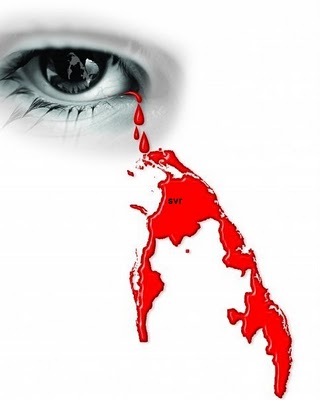strongly regret the unilateral decision by the Sri Lankan government to abrogate the cease fire agreement of 2002, however I do understand the militaristic mindset of the current political establishment in Colombo but must underline that there can never be a military solution to the legitimate grievances of the Tamil people.
The international community with special regard to the European Union (except Finland, Sweden and Denmark) are to blame for the failure of the cease fire agreement. The decision to ban one of the parties of this agreement had led to the foundation of the current friction in the military balance that affects the process to facilitate a durable solution to the conflict.
This decisive step in foreign policy by the European Union has been a huge mistake and in this context the European Commissioner for External Relations Benita Ferrero-Waldner statements are considered meaningless to the warring parties as the EU credibility has been weakened in the process of mediating.
Norway and Iceland has been left aside in their very sincere efforts to stop this decades old civil war. The decision by the European Union was considered as an unwise decision and objection has been made by the SLMM and Norway, however the EU was not willing to reconsider their decision and favoured a Bush policy, which led to a severe increase of violence.
I am disappointed that the international community has again failed to stop the deteriorating situation of this conflict and urge them to implement an en-compassing strategy which should be based on a even-handed approach to the warring parties. Unless this is achieved by the international community, both parties will resume hostilities and that might change the future status of this island and will once again affect all ethnic communities in Sri Lanka.

No comments:
Post a Comment